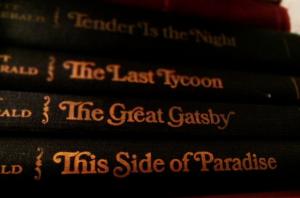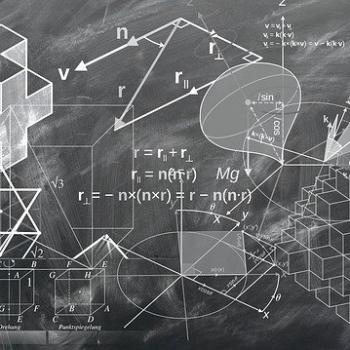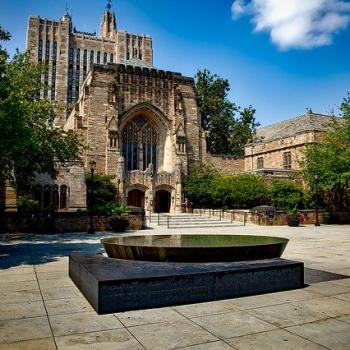 I ran across an excellent recent post by my former professor and fellow Patheos blogger, Gene Veith, about the importance of inhabiting, rather than simply teaching, the great triumphs of Western civilization. Veith invites readers to try some of the great accomplishments of the Western tradition, particularly if they’ve never really engaged them before. And that, in turn, led me to reflect on what it takes to truly develop a love of the best that the liberal arts have to offer—what it takes to want to listen to classical music over the latest Top 40 confection, or pick up Dostoevsky instead of something off the young-adult fiction bestseller list.
I ran across an excellent recent post by my former professor and fellow Patheos blogger, Gene Veith, about the importance of inhabiting, rather than simply teaching, the great triumphs of Western civilization. Veith invites readers to try some of the great accomplishments of the Western tradition, particularly if they’ve never really engaged them before. And that, in turn, led me to reflect on what it takes to truly develop a love of the best that the liberal arts have to offer—what it takes to want to listen to classical music over the latest Top 40 confection, or pick up Dostoevsky instead of something off the young-adult fiction bestseller list.
Let me begin by noting that formal education can only go so far. Veith correctly points out that even when the Western canon is taught in schools, “students need to take more effort in ensuring that they are getting what they need from their classes.” I would (shamefacedly) include myself in the category of students who didn’t take sufficient steps to develop their love for the Western tradition while in college—for me, that mostly happened later. I definitely spent too much time on racking up extracurriculars rather than on intellectual exploration more broadly.
But nevertheless, it still makes me sad that a good number of my friends from college—all of whom share my same background of coursework in the Great Books and their ilk—have largely stopped reading classic texts and engaging with the “great tradition” altogether. The explanation is usually straightforward: profound burnout and a sense that the key books have, for all intents and purposes, already been conquered. To the extent that the goal of liberal arts education is to cultivate an appetite for high-quality material that can be be enjoyed over a lifetime, something’s unfortunately getting lost in translation.
If I had to speculate about why this pattern is so persistent, it’s worth noting that it can be oppressively difficult to find an entry point into a prominent author’s body of texts, particularly where that author has been prolific or is well known for one work in particular. (For instance, the colossal Summa Theologica is probably the worst place to start reading Thomas Aquinas. The far shorter De Ente et Essentia is a much better entry point, but you’d have to stumble your way into that realization.) Finding good books outside the comfortable confines of a syllabus—and, more importantly, understanding them in the context of an author’s work as a whole—can be much harder than it seems. I still frankly have no idea where I’d start with John Updike, Giorgio Agamben, or Karl Barth.
As a means of helping address this problem, something I wish I’d learned sooner is the importance of reading good criticism. By “criticism” I don’t mean Goodreads reviews—I mean the sort of developed book review essay one finds in the New York Review of Books, the London Review of Books, or n+1 (on the left side of the political spectrum) or in First Things, the Claremont Review of Books, or The New Criterion (on the right). The authors who publish in these pages tend to be very well read themselves, and they tend to be capable of contextualizing a recently released book in light of seminal works from the past. That, in turn, helps me to understand whether a particular volume is worth my time—whether it is really “great” in the sense of “key to the Western intellectual heritage.” To wit, I recently picked up—and loved—Gustave Flaubert’s Madame Bovary after seeing it referenced over and over again by other writers.
And this is what put me on the path to loving the classics much more than I ever did before. The approach to analyzing literature that I learned in high school focused primarily on word choice and symbolism, with a smattering of larger-scale thematic analysis. That’s certainly an essential stage in any process of learning how to think critically about literature, but it does tend to set aside questions about the effect and purpose of a work as a whole, particularly relative to other texts of the same genre or era. If the project of inquiry never expands beyond this introductory stage, the student may be left unable to partake of some of the profoundest joys the Western tradition has to offer.
Those joys are real and worth struggling to attain. Reading high-level criticism helped me to understand that an author of high-quality fiction is, in the fullest sense, a philosopher: they create a world that reflects their broader convictions about reality and contains a narrative intended to speak something universally true about the human experience. That narrative is intimately bound up with a novelist’s cultural setting and the currents of global intellectual history more broadly. Moby-Dick, for instance, becomes far more compelling when read against the backdrop of a receding New England Calvinist culture (as, for that matter, does the “weird fiction” of H.P. Lovecraft). In short, the best literature is “porous” to deep questions of philosophy (and vice versa—the essential ethical question “how shall I live?” is a question about how one ought to conduct the narrative that is their life).
In this same spirit, I might also suggest a bit of a shift away from talk of “the Great Books” to talk of “Great Books” more broadly. The use of the definite article suggests that the literary canon is closed—that there’s a certain list of texts to be endured as part of the educational process, which can be SparkNoted through and sold away as quickly as possible. Instead, framing leisure time in the West as a process of searching out “Great Books” places the focus on developing a rule of recognition for the true, good, and beautiful, rather than on simply “banking” knowledge of texts (as Paulo Freire might put it) for some unknown future purpose.
Surely much more could be said—these reflections are only a few stray thoughts about an enormous subject. But it seems to me that in a time when countless streaming services and video games are so readily at our fingertips, the message that the classics are really so much better for us needs all the help it can get.












